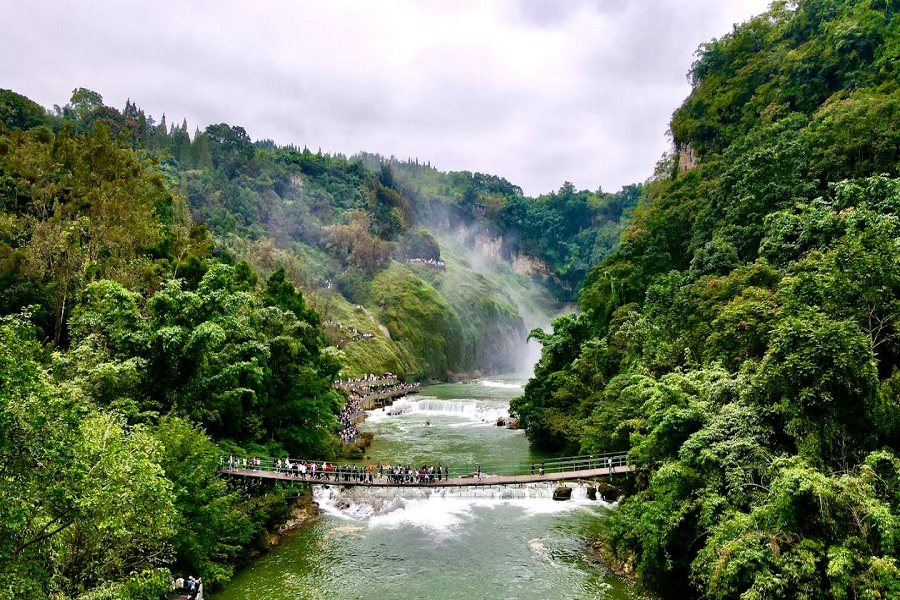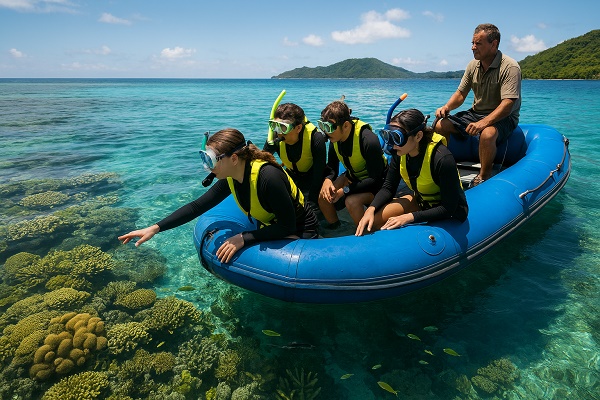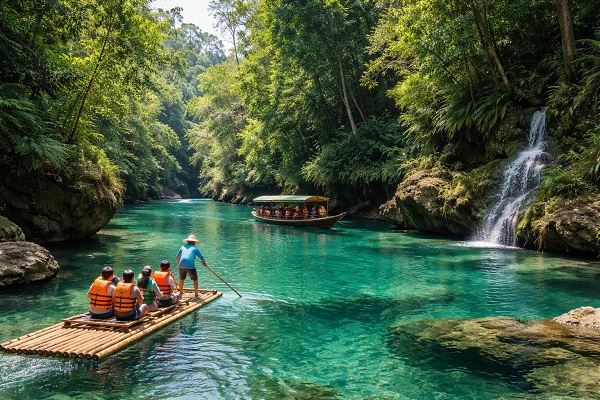Ecotourism: Exploring the World's Natural Wonders with Responsibility

In recent years, ecotourism has emerged as a powerful way to explore the world while preserving the very environments that make these destinations so special. With climate change and environmental degradation at the forefront of global concerns, more travelers are seeking experiences that allow them to enjoy nature without leaving a harmful footprint. Ecotourism offers a sustainable way to explore the natural world, promote wildlife conservation, and support local communities.
What is Ecotourism?
Ecotourism, also known as green or sustainable tourism, emphasizes responsible travel to natural areas that conserve the environment, respect local cultures, and benefit local communities. Unlike mass tourism, which often leads to over-tourism and environmental damage, ecotourism focuses on minimizing human impact on the environment. It encourages visitors to embrace low-impact activities, educate themselves about the ecosystems they are visiting, and support eco-friendly businesses.
Top Ecotourism Destinations Around the World
From pristine rainforests to breathtaking mountain ranges, ecotourism destinations are located across the globe. These destinations provide travelers with the opportunity to reconnect with nature, experience diverse ecosystems, and contribute to conservation efforts.
Costa Rica: A Biodiversity Paradise
Costa Rica is a pioneer in ecotourism and one of the most biodiverse countries in the world. With over 25% of its land designated as protected areas, Costa Rica is home to rainforests, cloud forests, volcanoes, and beaches. Visit the renowned Monteverde Cloud Forest Reserve or explore the Corcovado National Park, one of the most biologically intense places on Earth. Costa Rica's commitment to sustainable tourism practices ensures that your visit supports conservation efforts while giving you access to one of the planet's most diverse ecosystems.
New Zealand: Adventure Meets ConservationNew Zealand is a leader in promoting sustainable tourism, with a focus on protecting its unique landscapes. Travelers can explore the stunning Fiordland National Park, hike the world-famous Tongariro Alpine Crossing, or visit the Rotorua region to learn about M?ori culture and geothermal activity. The country's eco-friendly accommodations, tours, and wildlife sanctuaries offer a perfect balance of adventure and environmental responsibility.
Bhutan: The Land of Gross National Happiness
Bhutan has long been known for its commitment to environmental conservation and cultural preservation. The country’s policy of "Gross National Happiness" places the well-being of its people and the environment at the center of its development. Bhutan’s high-altitude trekking routes, such as the famous Tiger’s Nest Monastery hike, provide stunning views of the Himalayan mountains, while promoting responsible tourism and supporting sustainable livelihoods for local communities.
Kenya: Sustainable Safari Experiences
Kenya is renowned for its wildlife safaris, but it’s also an ecotourism haven. The Maasai Mara, Amboseli National Park, and Tsavo offer opportunities to see elephants, lions, and other iconic wildlife while supporting conservation initiatives. Ethical safari companies work closely with local communities to ensure the benefits of tourism are shared and that the wildlife is protected. Visitors can also participate in community-based projects and conservation activities, making a positive impact on both the environment and the local people.
How to Be an Eco-Conscious Traveler
Being an eco-conscious traveler doesn’t just mean visiting eco-friendly destinations. It’s about making responsible choices throughout your journey. Here are some tips to help you travel more sustainably:
Choose Eco-Friendly Accommodations: Look for hotels, hostels, and lodges that use sustainable practices such as energy-efficient lighting, water-saving systems, and waste reduction programs.
Respect Wildlife and Nature: Avoid disturbing wildlife and always stay on designated trails. Don't remove plants or disturb natural habitats.
Support Local Communities: Opt for locally-owned businesses, tour guides, and craftspeople to ensure your money is helping local communities thrive.
Limit Your Carbon Footprint: Consider taking public transport or walking instead of driving. If possible, choose destinations that are closer to reduce your carbon emissions.
Leave No Trace: Follow the principles of Leave No Trace by cleaning up after yourself and leaving natural areas as you found them.
Conclusion: Why Ecotourism Matters
Ecotourism isn’t just about visiting beautiful places—it’s about ensuring that these places remain beautiful for future generations. By supporting responsible travel initiatives, we can help protect the planet's natural wonders, promote conservation, and support communities that depend on tourism for their livelihoods.
So, the next time you plan your travels, consider choosing an ecotourism destination. With each step you take, you'll contribute to preserving the world’s most precious ecosystems and fostering a global culture of environmental responsibility.
























